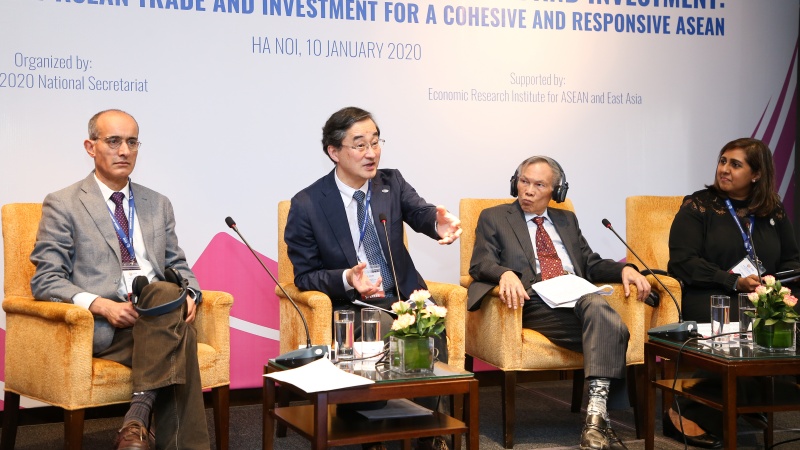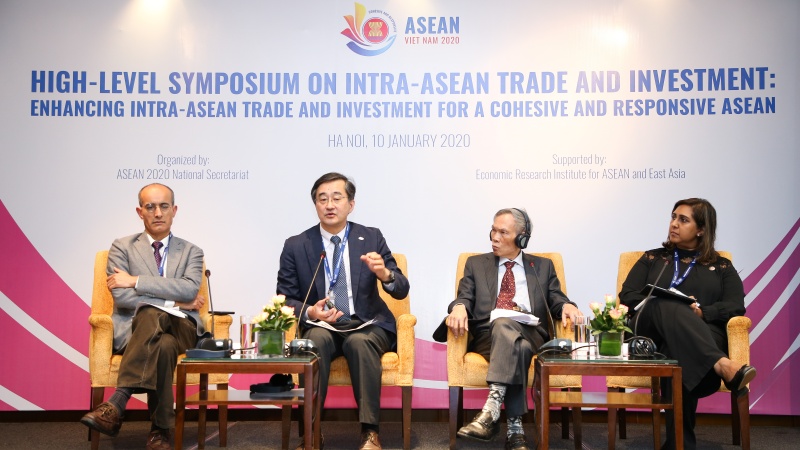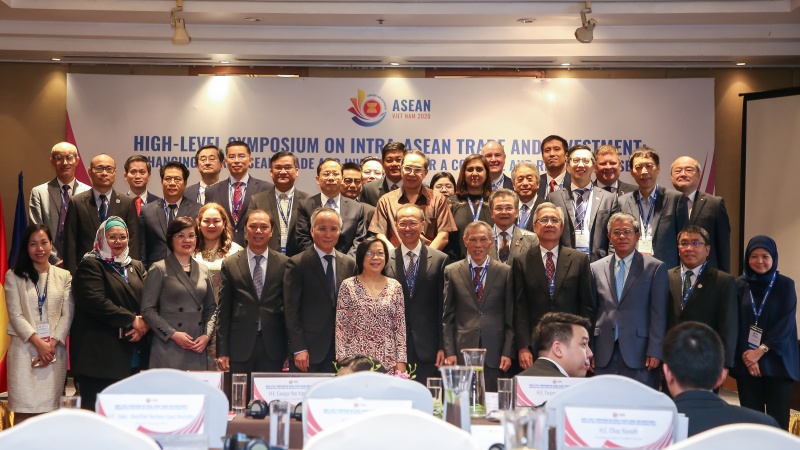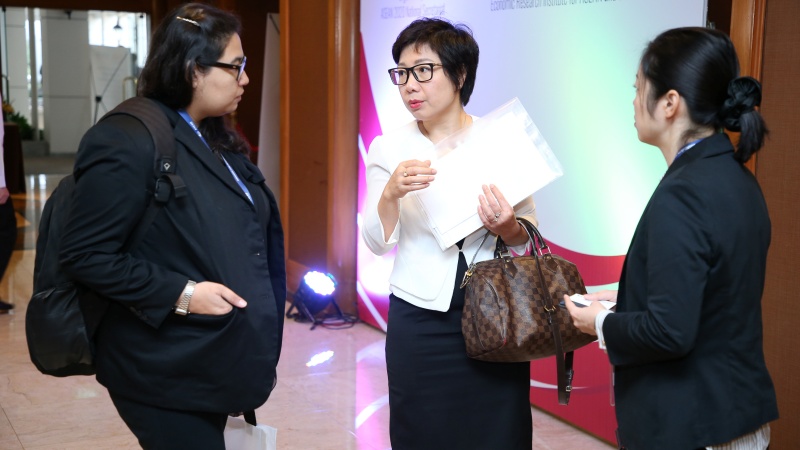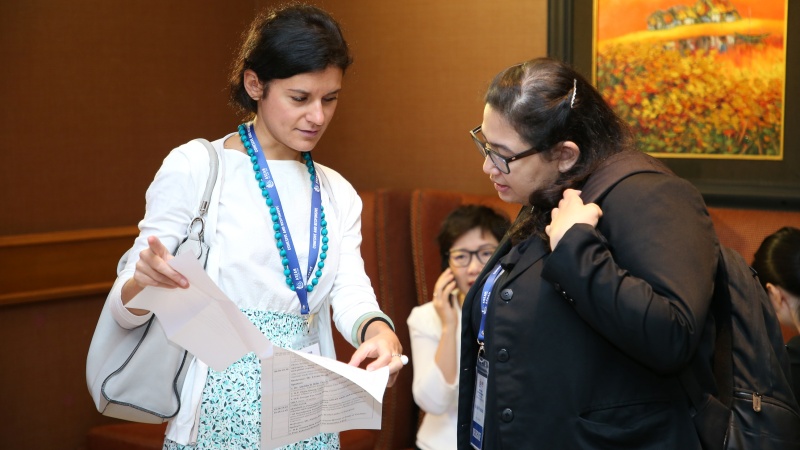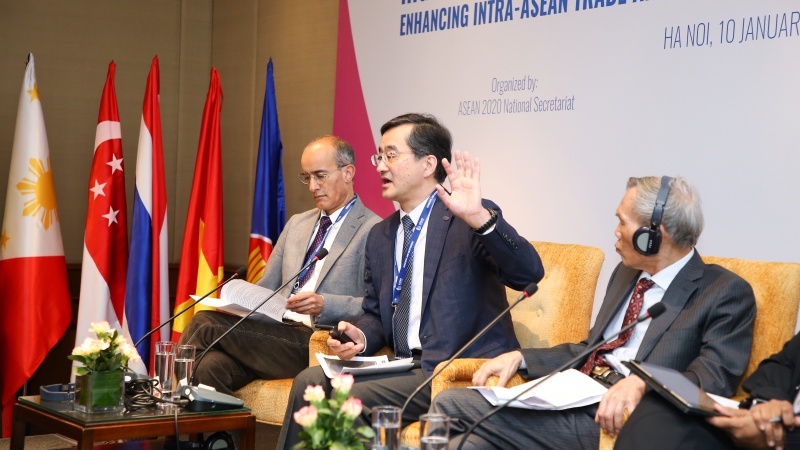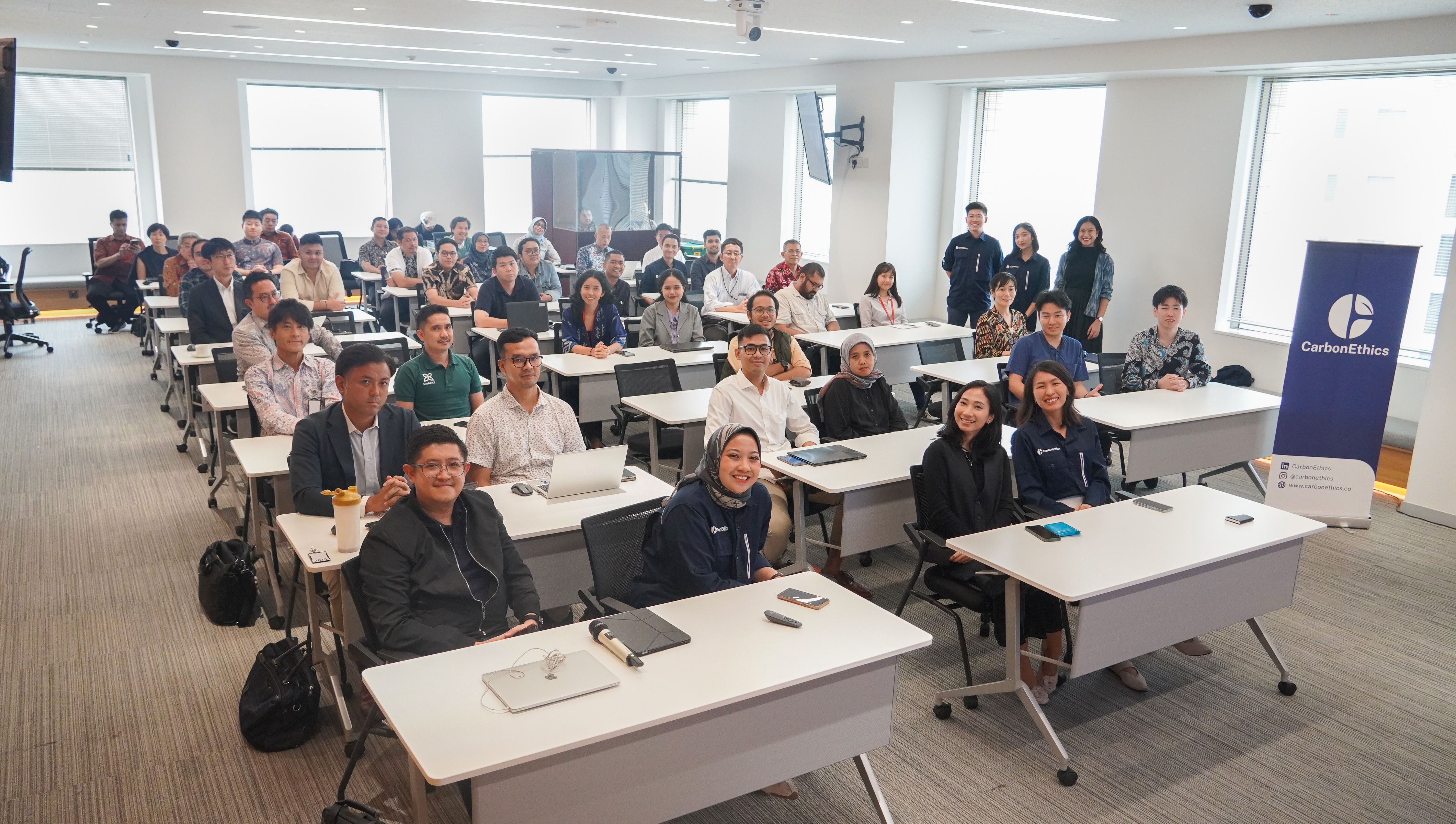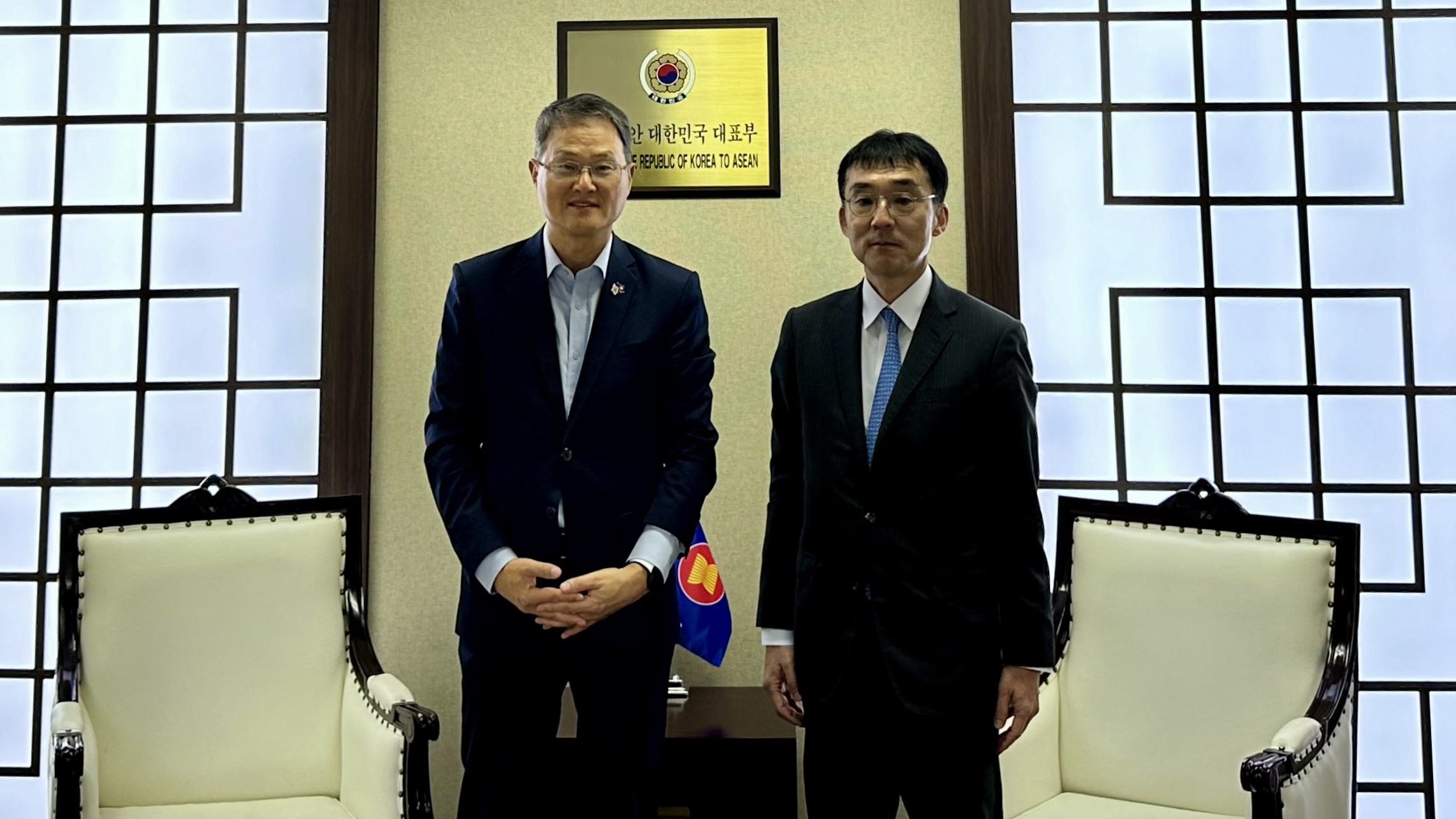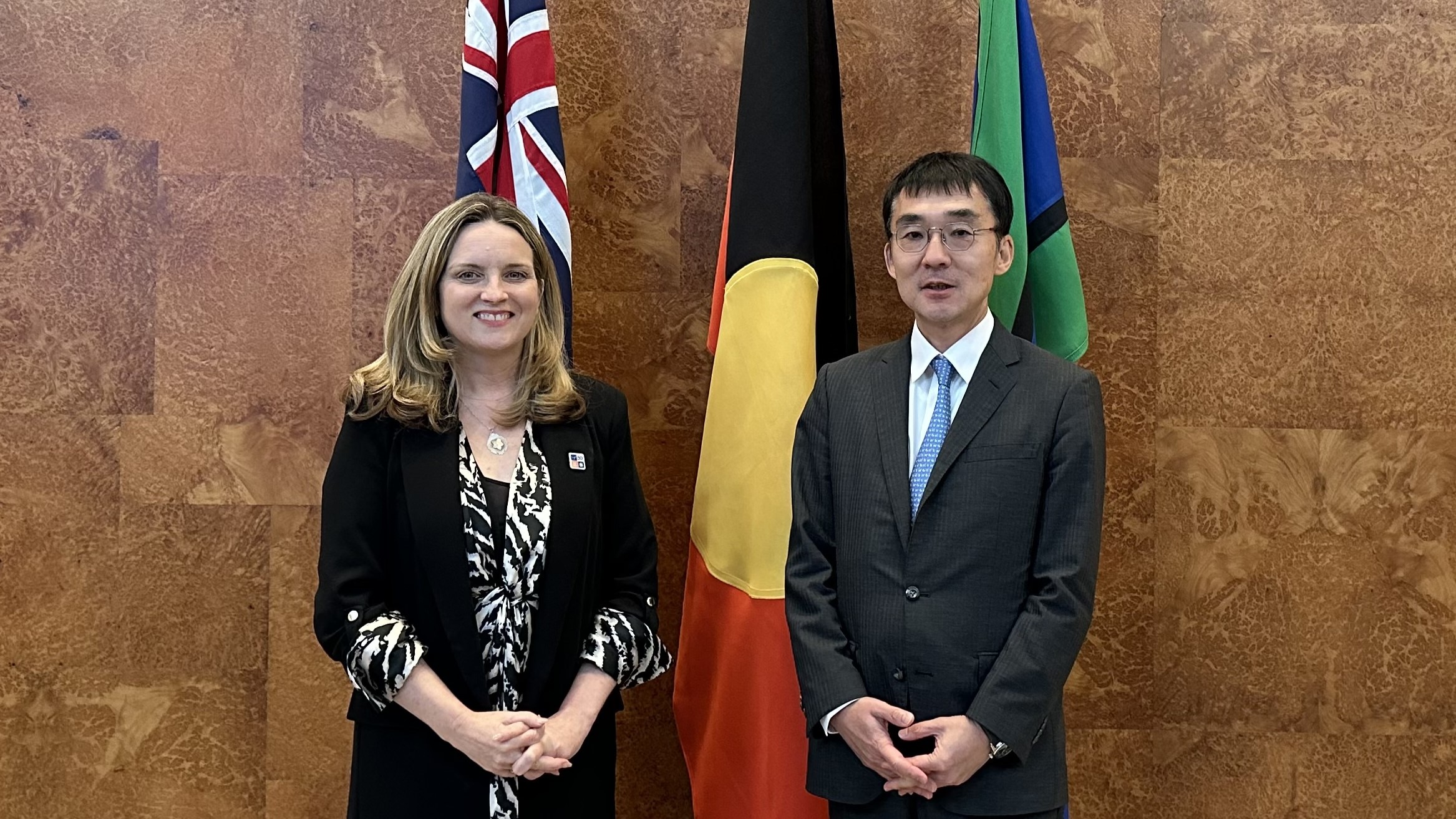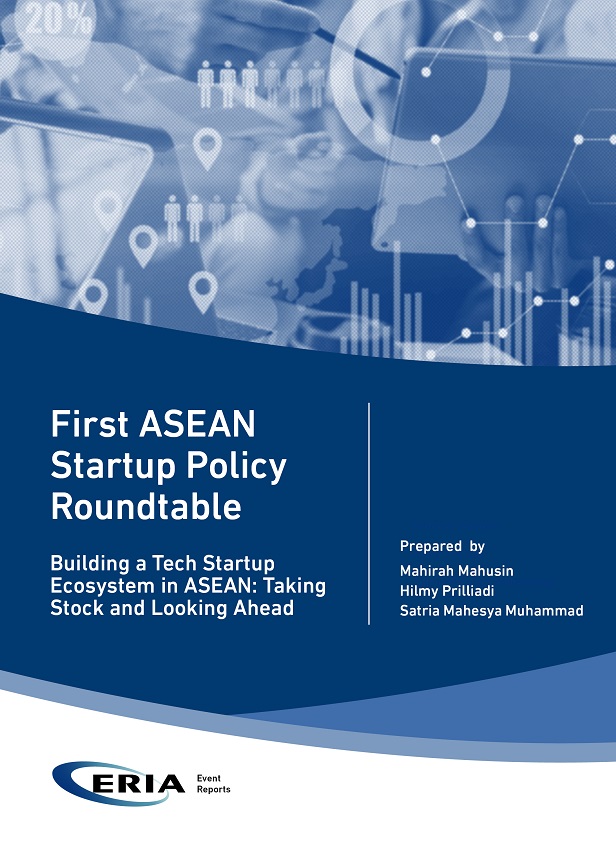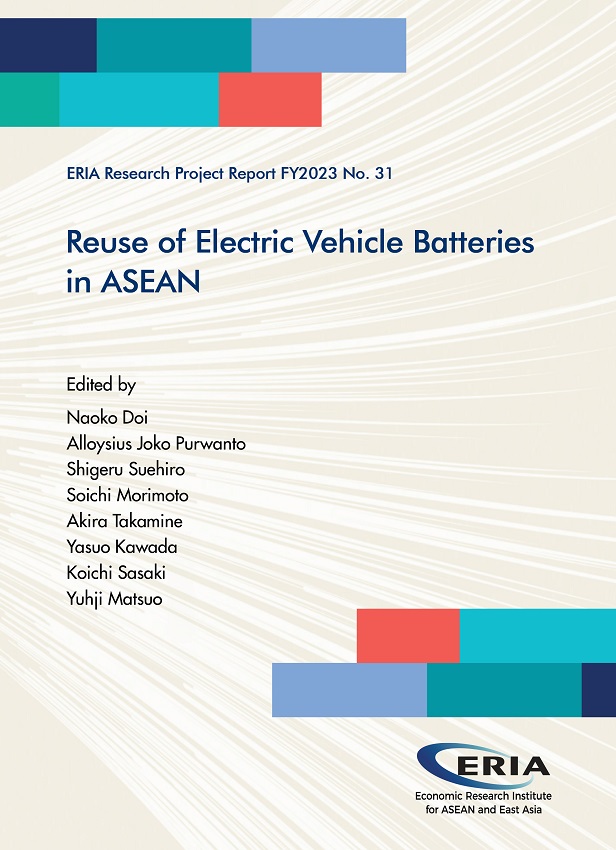ERIA Takes Part in High-Level Symposium on Intra-ASEAN Trade and Investment
Share Article:
Print Article:
Hanoi, 10 January 2020: The Economic Research Institute for ASEAN and East Asia (ERIA) participated in the High-level Symposium on Intra-ASEAN Trade and Investment: Enhancing Intra-ASEAN Trade and Investment for a Cohesive and Responsive ASEAN, organised by the ASEAN 2020 National Secretariat with support from ERIA.
The Symposium was opened by H.E. Vu Ho, Director General, ASEAN Department, Ministry of Foreign Affairs of Viet Nam and H.E. Tran Quoc Khanh, Vice Minister, Ministry of Industry and Trade of Viet Nam. The aim of the symposium was to provide discussion amongst policy makers and relevant stakeholders at the opening of the ASEAN 2020 calendar. The discussion of the symposium will inform deliverable and actions taking place under the Vietnamese Chairmanship of ASEAN in 2020.
The first session of the symposium included presentations and remarks from Dr Aladdin D. Rillo, Deputy Secretary-General for ASEAN Economic Community, ASEAN Secretariat, H.E. Pham Quang Vinh, Former Vice Foreign Minister, Ministry of Foreign Affairs of Viet Nam and H.E. George Yeo Yong-Boon, Former Foreign Minister of Singapore. Dr Rillo highlighted the on-going geopolitical and trade tensions at the global level and how they are affecting ASEAN. He also mentioned the great advancements that took place within ASEAN over the last 10 years in terms of intra-trade growth and FDI attraction: ASEAN is today the third largest FDI attraction region in the world after the US and the EU. H.E. Pham Quang Vinh reminded the importance of the economic integration pillar as a key foundation for the process of ASEAN integration. H.E. George Yeo Yong-Boon highlighted the importance for ASEAN to be open and connected to different regions in the world, China, US, but also the need to strengthen linkages to India and Europe. He mentioned how the geography of ASEAN affects economic development, for instance the archipelagic ASEAN (Indonesia and Philippines) still suffers from logistic and transport challenges: this is why place-base approaches are required. He also praised the work of ERIA, as an institution able to provide the support needed for ASEAN policy makers to make informed decisions based on data and statistics and evidence-based policy making.
ERIA was represented on the stage by the Chief Economist, Prof Fukunari Kimura. He gave a presentation on inter-regional trade integration during the second session of the symposium. Prof Kimura showed how intra-ASEAN trade flows are at good and stable level but nevertheless there is room for expanding these flows. He also explained how trade is changing in ASEAN and at global level: from more traditional forms of trade to trade linkages enabled by international economic networks and driven by digital technologies. This shift in the nature of trade linkages needs different approaches from policy makers. For example, standards and conformance arrangements are likely to become more important in the near future; flows of skilled labour, taking also account recognition of diplomas and qualification frameworks, are increasingly discussed in trade agreements; the emergence of digital services and industry 4.0 makes international data flows agreements important topics for reflection for policy makers. This shift from traditional forms of trade to more network trade linkages also enabled by digitalisation requires new thinking and new approached in policy making.
Other speakers participating in the symposium included representatives from international organisations such as the European Union (Dr Carsten Schittek, Minister Counsellor, Head of Trade Section, Delegation of the EUto Viet Nam), who mentioned the need of an ASEAN-EU free trade agreement; and the World Bank (Mr Aaditya Mattoo, Chief Economist, East Asia and Pacific Region), who highlighted the need for international organization to analyse the political economy of reforms. Additional participants included Mr Hirokasu Kobayashi, Executive Director, JETRO Singapore, Mr Chris Humphrey, Executive Director EU-ASEAN Business Council, and Mr Arin Jira, Chairman of ABAC Thailand. Mr Arin Jira praised the work of ERIA in the field of NTM (non-tariff measures) classification and identification.
